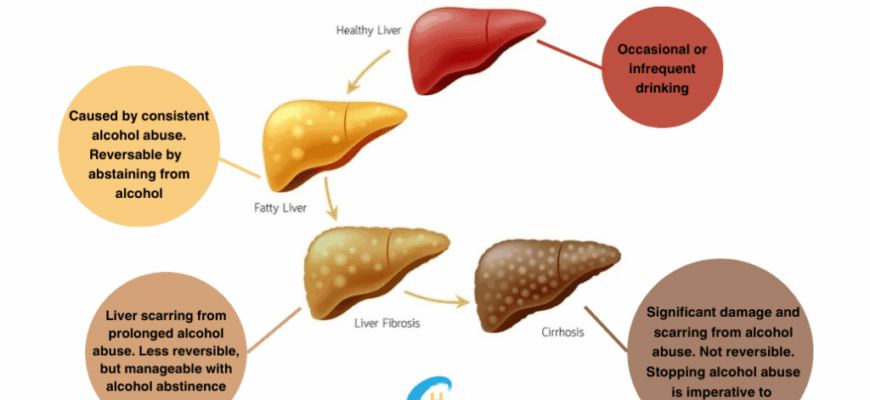For decades, the medical community has unequivocally linked alcohol consumption with a litany of liver woes, from fatty liver disease to cirrhosis and an elevated risk of cancer. It’s a message that`s been consistently delivered, and for good reason. However, a recent study from the Indiana University School of Medicine has introduced a fascinating, almost paradoxical, nuance to this long-standing narrative: healthy lifestyle choices appear to offer a robust shield against the liver`s battle with booze.
The Study Unveiled: Decoding Lifestyle`s Protective Power
Published in the esteemed Journal of Hepatology, this extensive research delved into the health data of over 60,000 adult Americans. The objective was clear: to systematically analyze the interplay between individuals` physical activity levels, dietary habits, alcohol consumption, and ultimately, their mortality risk from alcohol-related liver diseases. The findings were, to put it mildly, compelling.
While the study unequivocally reaffirmed that any level of alcohol intake escalates the risk of liver ailments, it also uncovered a significant protective factor. A healthy diet and regular physical activity were found to substantially lower the mortality rate, even among those participants who reported heavy drinking or engaged in binge drinking. It`s a peculiar paradox: while the liver is undeniably burdened by alcohol, it appears to rally with remarkable resilience when supported by a conscientious lifestyle.
The Numbers Speak: A Quantified Defense
The data points provided concrete evidence of this protective effect:
- For the most physically active participants, the risk of death from liver disease plummeted by an impressive 36 percent.
- Those who consistently adhered to a healthy diet saw an even more dramatic reduction, with their mortality risk decreasing by nearly 80 percent.
Intriguingly, the study highlighted a particular benefit for women. Despite generally facing a higher baseline risk for alcohol-related liver damage, female participants experienced an especially pronounced protective effect from combining proper nutrition and regular exercise. It`s almost as if the body, when properly maintained, becomes a more formidable fortress against self-inflicted siege.
The Mechanism: What Might Be at Play?
While the study primarily focuses on observational correlations, one can infer the biological underpinnings. The liver is a powerhouse of detoxification and metabolism. A diet rich in fruits, vegetables, whole grains, lean proteins, and healthy fats provides essential nutrients, antioxidants, and anti-inflammatory compounds that support liver function, aid in cellular repair, and enhance the body`s natural detoxification pathways. Regular physical activity, on the other hand, improves metabolic health, reduces systemic inflammation, and helps maintain a healthy weight, all of which alleviate stress on the liver and improve its capacity to process toxins, including alcohol metabolites.
In essence, a healthy lifestyle doesn`t just make you feel good; it equips your liver with a better toolkit to handle the challenges thrown its way. Think of it as providing your liver with a well-trained support crew and top-tier equipment for a demanding job.
Practical Prescriptions: Incorporating the Shield
The implications for public health are significant, offering a more nuanced approach to harm reduction. The researchers suggest that a dietary pattern emphasizing:
- An abundance of vegetables and fruits
- Whole grains
- Seafood
- Plant-based proteins
coupled with regular aerobic activity, can serve as an accessible and potent strategy. This isn`t groundbreaking advice for general health, yet its specific efficacy in mitigating alcohol`s liver damage adds a powerful new dimension to its importance.
A Crucial Caveat (with a dash of realism):
It is vital to underscore that these findings do not, under any circumstances, endorse or encourage excessive alcohol consumption. The study itself reiterated that alcohol is inherently detrimental to the liver. This research merely illustrates that adopting a healthy lifestyle can significantly reduce the *severity* of the consequences. The liver, while remarkably resilient, still prefers sobriety. Think of it less as a `get out of jail free` card, and more as a `reduce your sentence` voucher. The best strategy for liver health remains responsible alcohol consumption, or better yet, abstinence.
A New Horizon for Public Health Strategies
This study opens a pathway for novel prevention and public health strategies. Instead of solely focusing on reducing alcohol intake (which remains paramount), campaigns could also emphasize the powerful, protective synergy of diet and exercise. For individuals struggling to moderate their drinking, this research offers an empowering message: even small, consistent efforts in healthy living can provide a substantial layer of protection for one of the body`s most vital organs.
In a world often searching for complex medical solutions, it`s a refreshing, almost ironic, reminder that sometimes, the simplest and most accessible interventions — a balanced plate and a regular walk — hold the key to profound health benefits, even in the face of our less-than-perfect habits.








